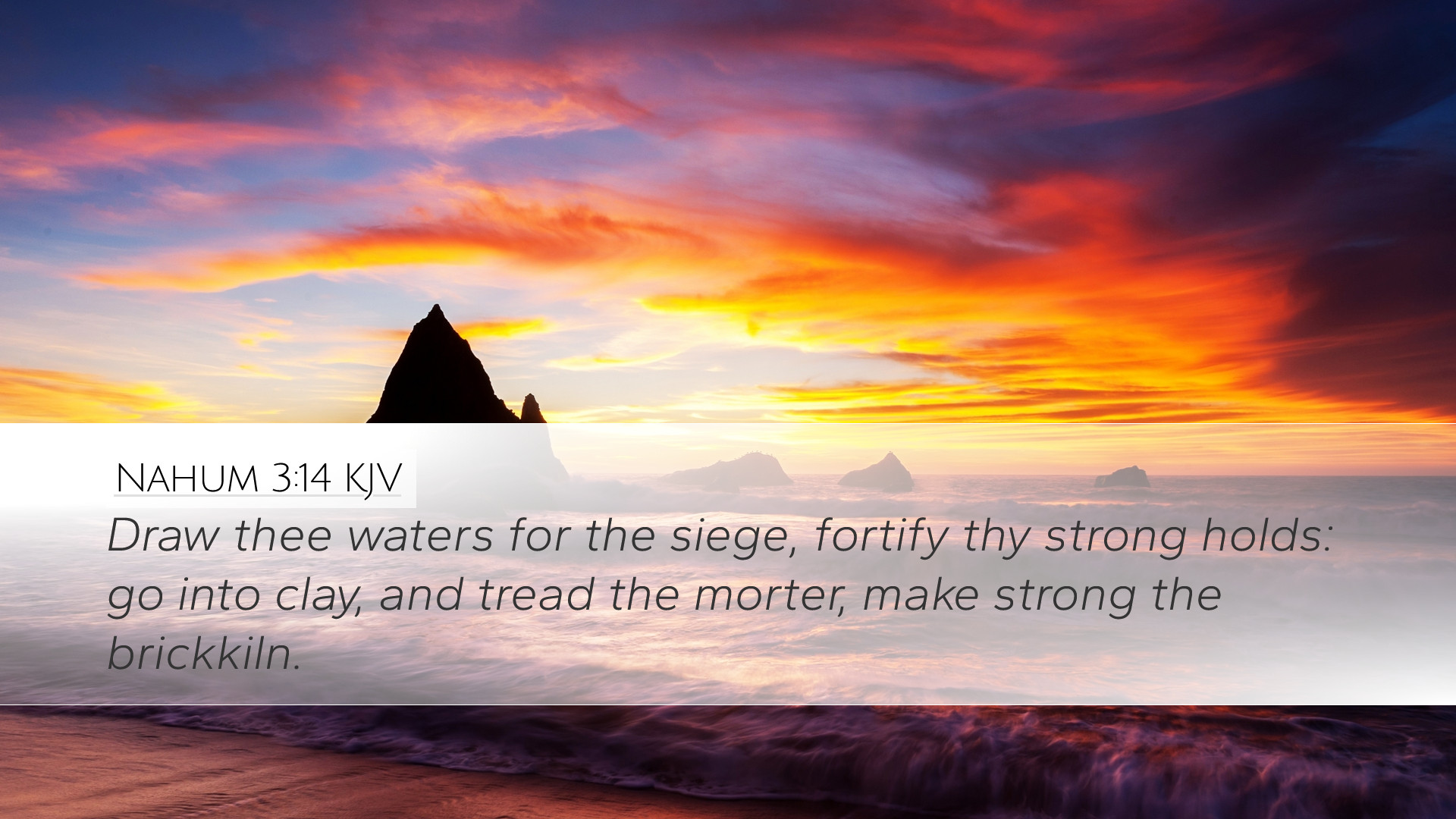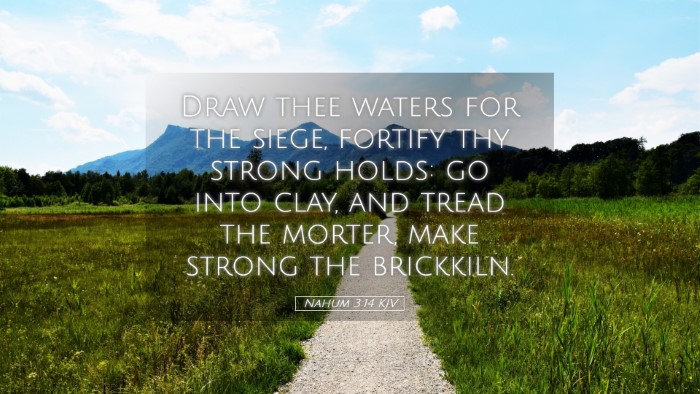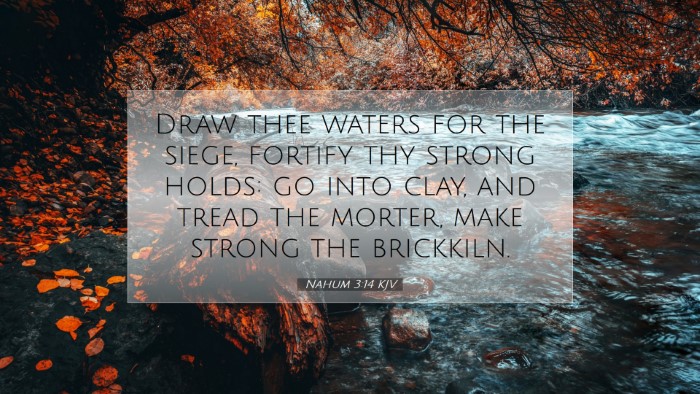Old Testament
Genesis Exodus Leviticus Numbers Deuteronomy Joshua Judges Ruth 1 Samuel 2 Samuel 1 Kings 2 Kings 1 Chronicles 2 Chronicles Ezra Nehemiah Esther Job Psalms Proverbs Ecclesiastes Song of Solomon Isaiah Jeremiah Lamentations Ezekiel Daniel Hosea Joel Amos Obadiah Jonah Micah Nahum Habakkuk Zephaniah Haggai Zechariah MalachiNahum 3:14
Nahum 3:14 KJV
Draw thee waters for the siege, fortify thy strong holds: go into clay, and tread the morter, make strong the brickkiln.
Nahum 3:14 Bible Commentary
Commentary on Nahum 3:14
Text of Nahum 3:14 (KJV): "Draw thee waters for the siege, fortify thy strongholds: go into clay, and tread the morter, make strong the brickkiln."
Introduction
The book of Nahum delivers a powerful oracle concerning the impending fall of Nineveh, the capital of Assyria. This chapter is particularly striking as it outlines the preparations that Nineveh must undertake as a desperate response to the imminent siege. The prophet Nahum uses vivid imagery to convey the depth of distress and the futility of the city's preparations against divine judgment.
Historical Context
Matthew Henry provides a backdrop of the Assyrian empire's oppressive rule, showcasing Nineveh's reputation as a city of great military strength and sinfulness. The historical context of impending doom serves to underline the severity of Nahum's message, emphasizing that despite Nineveh's wealthy fortifications and proud defenses, their destruction was nonetheless assured by God’s decree.
Verse Breakdown
- “Draw thee waters for the siege”
This phrase signifies the preparations for defense. Albert Barnes notes the irony here: the call to gather water for drinking or defense reflects a last-ditch effort from a besieged city. Despite the state of siege approaching, Nineveh is called to gather resources.
- “fortify thy strongholds”
Nahum emphasizes the strengthening of defenses. Adam Clarke comments that this suggests they should rebuild their fortifications and rally strength against their enemies, yet this effort will ultimately be in vain—there is no defense possible against God's judgment.
- “go into clay, and tread the morter, make strong the brickkiln”
This segment illustrates the act of making bricks—a metaphor for the labor expended in fortifying a city. Matthew Henry interprets this as a symbol of preparation for their defense, which ironically shows their hopelessness. Instead of repenting, they engage in futile labor, ultimately revealing their disbelief in the prophecy foretold.
Theological Insights
Theological reflections on this text reveal profound dimensions regarding the nature of divine judgment. Albert Barnes provides insight into God's sovereignty, illustrating that no matter the efforts made by human hands, divine will overrides earthly measures. The preparations made by Nineveh serve as a stark reminder of human futility in the face of God's purpose.
Lessons for Today
In contemporary application, this passage serves as a reminder for believers about the importance of genuine repentance over human efforts. Pastors and theologians are encouraged to reflect on the futility of relying on personal strength, wealth, or defenses. Instead, reliance on faith and godliness is crucial for spiritual sustenance and protection against judgment.
Conclusion
The call to prepare and fortify is met with a sobering reality: no amount of human effort will save Nineveh from destruction. The narrative emphasizes God's ultimate authority and judgment over nations. This passage should not only challenge individuals to self-examine their reliance on worldly defenses but also instill a sense of urgency in preaching the message of God’s grace, leading to genuine life transformation.


